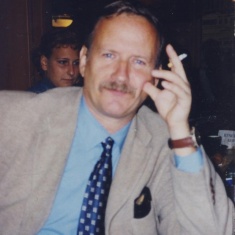Notes
- ↑ "Hajro Ulqinaku". www.ulqini.de. Retrieved 18 January 2024.
- ↑ "Perurimi i librit ULQIN, TI KALA - Hajro Ulqinaku". 16 June 2011.
- ↑ "Hajro Ulqinaku dhe obsesioni për detin". 25 May 2013.
| International | |
|---|---|
| National | |
Hajro Ulqinaku | |
|---|---|
| Born | 3 April 1938 Ulcinj, Kingdom of Yugoslavia (now Montenegro) |
| Occupation | Writer, novelist, journalist |
| Citizenship | Montenegrin |
| Alma mater | Universiteti i Prishtinës |
Hajro Ulqinaku (born April 3, 1938) is an Albanian writer from Ulcinj, Montenegro. [1]
Hajro was born on 3 May 1938 to an Albanian family in Ulcinj, Montenegro. He finished the primary and secondary school in Ulcinj and the university studies in Universiteti i Prishtinës in Pristina, Kosovo.

Ulcinj is a town in the Coastal region of Montenegro and the capital of Ulcinj Municipality. It has an urban population of 11,488.

Skadarska Krajina, generally known simply as Krajina is a geographical region in southeastern Montenegro stretching from the southern coast of Lake Skadar to the mountain of Rumija, comprising several villages. It is inhabited almost entirely by Albanians. The area is divided between the municipalities of Bar and Ulcinj.
Albanians in Montenegro are ethnic Albanians who constitute 4.97% of Montenegro's total population. They belong to the ethnic Albanian sub-group of Ghegs, and they are the largest non-Slavic ethnic group in Montenegro.

Shkreli is a historical Albanian tribe and region in the Malësia Madhe region of northern Albania and is majority Catholic. With the expansion of the Ottoman Empire, part of the tribe migrated to Rugova in Western Kosovo beginning around 1700, after which they continued to migrate into the Lower Pešter and Sandžak regions.

Leon Qafzezi is an Albanian writer and cineaste.

Mujo Ulqinaku was an Albanian sergeant of the Royal Albanian Navy, known for his resistance on 7 April 1939 to the Italian forces during the Italian invasion of Albania. He was given the People's Hero of Albania award posthumously.

The Malissori uprising or the Albanian revolt of 1911 was one of many Albanian revolts in the Ottoman Empire and lasted from 24 March 1911 until 4 August 1911 in the region of Malësia.
Reč is a small town in the municipality of Ulcinj, southeastern Montenegro.Reč is mentioned in 1413 in the Scutarias taxable income part of the Albanian (arbanas) katun of Gjon Kereçi In recent times, many locals have migrated, notably to the United States. The area is a prime site for agricultural land, hunting, and fishing.

Battle of Ulcinj took place between the Ottoman forces of Dervish Pasha and Albanian irregulars in the year of 1880 at the region of Kodra e Kuqe, close to Kllezna. The area of Plav and Gusinje had been ceded to Montenegro according to the Treaty of Berlin (1878), but the Albanians fought against the annexation. The Great Powers then persuaded the Ottomans to cede the area of Ulcinj, but the Albanians yet again refused. Eventually, the Great Powers commanded the Ottomans to take actions against the League of Prizren, ending the resistance and successfully handing over the town of Ulcinj to Montenegro.

Mustafa Osman Alibegu, OSK, known as Cafo Beg Ulqini, was a soldier, nationalist and politician. He served as the first Albanian mayor of Ulcinj for two decades, and deputy of Ulcinj in the Albanian Parliament. He was appointed as member of the High Council of Regency in 1944. On April 16, 2016, he was posthumously recognized by Albanian President, Bujar Nishani, with the title "Knight of the Order of Skanderbeg.
Krute is a village in the municipality of Ulcinj, southeastern Montenegro. It is located north-east of Ulcinj town.

Ledri Vula is a Kosovo-Albanian rapper, singer and songwriter.

Kryethi was an Albanian tribe (bashkësi) of the Middle Ages in the coastal areas of northern Albania and southern Montenegro.
Gazmend Çitaku is an Albanian Montenegrin photographer, publisher, and librarian. Born on December 4, 1970, in Skenderaj, Kosovo, he lives and works in Ulcinj, Montenegro. He belongs to the Universum Academy of Switzerland, Bashkimit të Krijuesve Shqiptarë në Mal të Zi, and the Qendrës Mediterane të Fotografisë dhe Asociacionit Ulqini.
Bardhyl Londo was an Albanian poet and writer.
Sveti Đorđe is a village in the municipality of Ulcinj, Montenegro. It is located 15km northeast of Ulcinj, on the west bank of the Buna, on which the Montenegro–Albania border lies.
Ulqinaku is a surname. Notable people with the surname include:
Hajrullah Koliqi (1946) is an Albanian educator, lecturer and university professor from Montenegro.